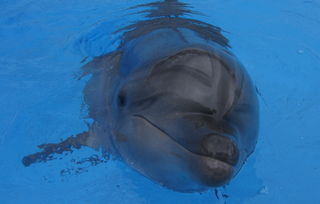Environment
Do Animals Think?
We are not as unique as we think.
Posted March 10, 2020 Reviewed by Jessica Schrader
A while ago, I gave a guided tour for a group of fifth-graders at the ape house of the Zoo of Leipzig, Germany. During the tour, one bright kid asked: "Are animals able to think? Our ethics teacher said they cannot; they are only driven by reflexes and react to stimuli."
I answered with full conviction: "Your teacher is wrong; animals do not only behave according to reflexes, but they can—to a certain extent—think, and they understand a lot about their environment.”
Of course, everything depends on how one defines “thinking.” In comparative psychology, scientists prefer to talk about “cognitive skills” that are investigated in animals. We want to know how animals perceive and what they understand about their environment.
Usually, we do not call animals “intelligent” or “smart” because that always includes an assessment. In order to be considered as “smart,” is it more important to be able to do statistics, to recognize yourself in a mirror, or to use a tool? I definitively do not want to judge here. In this post, I just want to share the latest findings about cognitive skills in the animal kingdom, some of which might be surprising.

For some time now, we have known that humans are less different from animals than we had long assumed. From a comparative perspective, humans are not at all as incredibly smart and unique as we always thought.
This may surprise or even disappoint some people, as the differences between humans and animals have long been emphasized, especially in the Western world. The philosopher Aristotle had already begun to do so. He assumed that only man is "reasonable."
In the conception of Christianity, man as the image of God is superior to the animal. Later, René Descartes described animals as machines in comparison to which only humans possess a soul in addition to the body. Hegel then highlighted the differences between man and animal. He was convinced—just like the ethics teacher above—that thinking is what distinguishes humans from animals.
Charles Darwin was the first scientist who emphasized the similarities between humans and animals. He wrote that there is no fundamental difference between humans and higher animals in terms of their emotional, mental, and moral abilities. Among scientists, Darwin’s theory of evolution was quickly accepted.
But one consequence of Darwin’s thinking was long discussed in public, namely that we are closely related to the great apes. By the middle of the last century, our kinship with apes was widely accepted. However, even scientists still believed that man and ape were fundamentally different.
For example, humans were considered unique because they make tools. When the British primatologist Jane Goodall discovered in 1960 that chimpanzees create their own tools, this assumption was also questioned. Goodall's mentor Louis Leakey responded to her observation with a famous telegram: "We must now redefine man, redefine tool, or accept chimpanzees as human!"
To this day, chimpanzees are still not considered human beings. However, it has become generally accepted that tool making is not at all uniquely human. And this is the case with many other cognitive abilities that scientists have found in the animal kingdom.
But until today, the differences between humans and animals are still emphasized. A few years ago, I heard a talk about the inner clock in humans and animals at an interdisciplinary conference. The lecturing biologist concluded his lecture with the warning that there could be unexpected side effects if we do not respect our inner clock.
A philosopher opened the discussion with, "But we are cultural beings; we have evolved above biology." I was stunned. Unfortunately, I missed the opportunity to ask him if he goes to the toilet regularly, or if he has sex with his wife. There is no doubt that we as humans have developed a unique culture, but that, of course, does not mean that we are no longer subject to biological laws!
Certainly, the philosopher is right in that we are not only biological beings but also shaped by our cultures. It is, of course, true that humans and animals differ considerably in their way of life. One of the big questions is how this has evolved.
The common ancestor of humans and chimpanzees lived only 6 million years ago. But why are we so different now? Could it be that in this short time—evolutionarily speaking—we have developed all these cognitive abilities anew, which today enable us to build computers and fly to the moon? Probably not.
It is much more likely that at least some of these abilities are also found to some extent in animals. For a long time, many abilities were thought to be exclusively human—but in the last few years, we learned that: Newborn chickens can calculate, chimpanzees help each other, parrots talk, and scrub jays plan for the future.
Every week, new findings support the idea that animals are indeed capable of thinking.
References
Bastos, A.P.M. & Taylor, A.H. (2020) Kea show three signatures of domain-general statistical inference. Nat Commun 11, 828.
Haslam, M., Fujii, J., Espinosa, S. et al. Wild sea otter mussel pounding leaves archaeological traces. (2019) Sci Rep 9, 4417.
Reiss, D. & Marino, L.(2001) Mirror self-recognition in the bottlenose dolphin: A case of cognitive convergence. Proceedings of the National Academy of Sciences 98 (10) 5937-5942.




